
A meta blend of fiction and documentary
Or as Peter Bradshaw, writing for The Guardian, put it: "Buddhist supernatural realism".By the Time It Gets Dark has a clear point of departure: The 1976 Thammasat University massacre. The film draws its initial reflections from the few photographs available from the time, before spending the rest of the film shifting between gaps, silences and layers around and beyond the historical event.
The majority of By the Time It Gets Dark follows the journey of the film-making itself. Not in a behind-the-scenes way, but the struggle of the craft in attempt to convey meaning. It's self-reflexive while, at the same time, not shunning the audience. Don't worry, this isn't one of those arthouse films that experiments for the sake of self-indulgence. You can sense the creators' desire to grapple with the 1976 massacre while struggling to develop and articulate its meanings on multiple levels.
It's not trying too hard, nor is it a chore to watch. When you take this film for what it is, you're able to appreciate it more.
When Ben Kenigsberg from the New York Times said if there couldn't be explanations, then at least there should be "footnotes" and that it'll go over the heads of those not "in sync", I think it's important to note that being "in sync" is besides the point. The visual glitches and play with colour saturation near the end of the film show that that even the creators themselves aren't "in sync" with what is being (or not being) represented.
I don't have this film figured out and you're not meant to. By the Time It Gets Dark is one of those artworks, like poetry, where, if you're trying to figure out what it's 'saying', then you're misunderstanding its existence. If it lingers, then that is sufficient.
Peter Bradshaw's Guardian Review: https://www.theguardian.com/film/2017/jun/16/by-time-gets-dark-review-bangkok-protests-massacre-anocha-suwichakornpong
Ben Kenigsberg's NYT review: https://www.nytimes.com/2017/04/13/movies/by-the-time-it-gets-dark-review.html
Mark Kermode's Guardian Review (I find his reading to be more generous): https://www.theguardian.com/film/2017/jun/18/by-the-time-it-gets-dark-film-review-dazzling-reflections-thai-history
Was this review helpful to you?

This review may contain spoilers
Can we have more queer coding and less toxic men plz?
The Story of Kunning Palace has a fantastic premise. It starts where most historical Cdramas end: a despotic empress dies after losing a coup d'état. But lo and behold! She suddenly wakes up, reincarnated in the same life but as an 18 year old again, with a chance to set things right.For fellow fans of the latest isekai craze that has hit the anime scene, this plot may sound familiar. But unlike the comedic anime takes that places anime FLs in otome games, Kunning Palace takes itself far more seriously. Our FL is determined to do the right things by the people she wronged the first time round and does not mind using some underhand methods to do so. Along the way she (once again) meets the ML who, similarly, has good intentions and subscribes to an ends-justify-the means approach. A perfect match, right? So I thought initially.
Frankly, I quickly lost interest in the political intrigue of this drama and stayed around for the romance. Unfortunately, a gross error on my part. What the drama tries to construe as romance – I can only assume this from the sappy romantic soundtrack – is actually just the ML sexually assaulting the FL. Sorry to be blunt, but that's what it is.
This sexual violence would not have been an issue if the drama treated it as such. But with both the soundtrack and with the ML lead 'winning' the FL in the end, what the drama does instead is normalise violence in a romantic/sexual relationship. Ultimately, this ruined what I liked about the drama – two deeply flawed characters finding each other as soulmates.
Given this situation, I would have loved to see more romantic development with the FL and other characters. Obviously being a Chinese production, there's only so much you can do given censorship (especially recent crackdowns), but there was already clear queer coding happening between Jian Xue Ning and the Princess and You Fang Yin respectively. Perhaps this can be my pitch for a Kunning Palace baihe spin-off :)
Was this review helpful to you?

Let middle aged women shine !!
I won’t go into the flaws of this drama that others have already pointed out - such as the implausibility of the FL’s character, the monotonous acting, or the distracted screenwriting style.Instead, I’m interested in The Glory's double edged sword: its treatment of female relationships.
The drama’s strength is, without a doubt, Haiyan’s relationship with her mother: the beautifully cast Wen Zheng Rong. The mother/daughter connection is first presented as a deep emotional knot waiting to be untied over thirty episodes. From her first frames in episode one, Wen Zheng Rong is the strongest presence on screen (with kudos to the costume and makeup department who went above and beyond the brief). Mother figures in historical C-dramas are often depicted as either wicked and cunning or self-sacrificing, willing to do anything to protect their offspring. At first, thanks to some intricate unknotting in the relationship between mother and daughter, it looked like The Glory might break from convention. Unfortunately (without going into spoilers), it was not to be.
The other strength of the drama - albeit a fleeting one - is the subtextual GL relationship between Hanyan and Chai Jing. I was really hoping that I could live in my self-deluded fantasy where they could pursue their unspoken romance while the ML/FL relationship took its lavender-scented course. Alas, my fantasy crashed out a lot earlier than I was expecting.
Which brings me to the flip side of the coin. Surprisingly, I don’t think the ML is the drama’s weakness. The FL/ML relationship is, for the most part, one of mutually beneficial transaction. The ML has red flags, but no more than the FL does. And he’s not the one who destroys the aforementioned relationships between Hanyan and the two key women in her life. The writers are the guilty party.
[Admittedly there is a tiny spoiler in the paragraph below]
The writers find pretexts to remove the FL from her two close relationships with women, leaving her isolated. Unlike the FL in Story of Pearl Girl, for example, the FL in The Glory has no commercial traits that would provide her with financial independence. And thus the historical setting matched with the plot-driven isolation means she turns to the ML as a source of material support (because it’s hard to pursue revenge without food in your belly and a roof over your head). The ML therefore doesn’t need to rely on coercive methods - such as the blackmail marriage trope - because the broader plot effectively does it for him.
When the FL goes on her spree of neoliberal feminist campaigning in middle episodes, it comes across flat and hollow. By this point in the series, the writers have forbidden her from developing deep women/women relationships (romantic or platonic) and unlike other dramas of this genre, she doesn’t even have a close relationship with her maidservants.
Honestly, I could’ve given this a lower star rating. Fortunately, the show is somewhat redeemed thanks to He Hong Shan - who is a delight, as always - and Wen Zheng Rong (100000%). If nothing else, watch it for her. She steals the show.
Was this review helpful to you?

Wants to be a sex scene
Let's be real, the writers totally would've included one in the original series if they could have. As I said in my review of The Double, the FL and ML are horny AF and certainly continue to be in this 6 minute special ep.However, I found the sex appeal of these two in the original series to come from their switching. For most of the series they followed a traditional masc/femme, dom/sub dynamic – and it was the moments where they swapped roles when the sexual tension became pure electric.
Except for a rare glimpse of a fan in Xue Fangfei's hands, this short does not deliver the same power/sexual dynamic. Not only is the scene a picture of bland domestic bliss, it's also a consolidation of the Good Governance narrative from the original series.
As I mentioned in my review of the The Double, the political plotline hinged on the main characters supporting the 'rightful' emperor. As this 6 min epilogue asserts: the world is at peace. All the Baddies have been vanquished and the people (or at least the noble elites) can enjoy their lives. Nothing is rotten in the state of Denmark.
Anyway, this short was clearly meant to satisfy viewers who were invested in the romantic storylines of The Double. I'm afraid that wasn't me.
===
My review of The Double: https://kisskh.at/profile/TheUnhinged/review/392435
Was this review helpful to you?
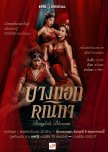
Predictable storytelling with big heart
Bangkok Blossom is one of those dramas where you can sense the overall thrust of the plotline from the first episode. While a satisfying underdog fight-against-the-odds story, it's also a very predictable one. Consequently, I felt the pacing was often off kilter – especially when a lot of time was sunk into big reveals that we could easily see coming.This is my first lakorn so I'm not sure what the standard is, but I felt like the acting was all over the shop. I can at least understand why these types of dramas don't really prioritise subtle complexities in acting, but the face-value acting sometimes made the characters seem wooden and repetitive. However, I did really enjoy Goy's and Charlette's performances. They kept me going through the episodes, even when the pacing was lagging.
Nonetheless, I think what makes Bangkok Blossom stand out is its big heart. It really does the right thing by its audience and commits to the bit 110%. I actually appreciated that even the 'good' men were mediocre and useless, because not only did it feel realistic, it also meant the women shone all the more in contrast. So, even though it took me a while to struggle through episodes, I knew from the start I'd need to see it through to the end.
Was this review helpful to you?
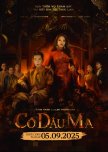
Fool's gold
*sigh* this movie had potential. I'm pretty over the Sacrificial Young Maiden trope by now – especially after having watched Damsel (the big Hollywood production with Millie Bobby Brown) earlier in the year, and now the The Bride. It's such a tired cliché, so if you're going to do it, you better do it perfectly. The Bride does not.The story as a whole is a struggle. The mystery in the plotline isn't really a mystery. The twist in the middle is predictable. And the ending feels flat. Yet there were instances, particularly after the little plot twist, where I saw gleams of curious concepts at play.
For example, there were moments where the relationship between the protagonist and the spiritual world seemed interesting and complex. But each time it looked like there might be something more to unravel, the story immediately plateaued. And the moments were, well, merely moments.
The Bride does get brownie points for costume design. But otherwise, the VFX wavered between impressive and laughable, the acting was oftentimes wooden, and the narrative structure was erratic. This is one to torrent, don't pay to see this in the cinema like I did.
Was this review helpful to you?

Misleading advertising
This is not a revenge drama. It's a highly contrived romance that uses revenge as it's major pretext. So let's get that out of the way first.Eve is a deeply frustrating watch. Just when you think you might be able to get somewhere interesting, the next episode makes you feel like you've been taken out on a bad date and forced to pay the bill. Hands down, I 100% agree with bad lilies' review and will add three things:
1) Our FL is understandably a bit upset about her dad being violently murdered in front of her as a child and therefore decides to take revenge on the perpetrators. I, on the other hand, am not upset.
The dad is a CEO killed by another CEO-type. And as someone who is very much Team Luigi Mangione, I honestly don't see her dad's death as a great loss. I feel no sense of injustice. I therefore have no investment in the emotional thrust of the revenge.
However, I would've liked to have heard more from her fellow partner in revenge - whose ire seemed to be rooted in workers' struggle rather than purely interpersonal issues - but that would've required good writing and the producers didn't seem to want that.
2) For some reason, our ML was only allowed a quota of ONE facial expression for the entire series except for the last couple of episodes where I counted THREE whole facial expressions. I had no emotional investment in him as the love interest because he was a CEO (ick), dull (ick), and wayyyyy older than the FL (ick, unless you play your cards right).
Also let middle aged people be normal middle aged people?? There's no need for such a heavy handed face filter or to insist on your actor being SUPER jacked. Plz just let him have a normal dad bod! It's ok!
3) The kids were the best part of this drama. I hope they had a fun time. The end.
Was this review helpful to you?
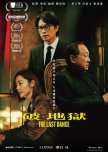
Souls trapped in the human realm, unable to move on
As much as I hate to admit it, it was the movie adaption of John Green's The Fault in our Stars that taught me, "Funerals... are not for the dead. They are for the living."From watching the trailer, I thought this film would be presented in clashes of dichotomies: death vs life, tradition vs modernity, religion vs industry. And while all these themes do surface in the film, they don't do so as mutually exclusive dichotomies. Instead, the richness of The Last Dance comes from the intersections and overlap of these themes.
The story structure itself is neat. There are three parts and the narrative comes fulls circle, starting and ending with the Taoist funeral ritual of Breaking Hell's Gate. The cinematography of the ritual scenes alone could carry the film if needed. But the bulk of the film is what provides the emotional impact of these scenes.
The strength of this film is its messiness. And the messiness is found at the intersections. Tradition and modernity don't so much clash with one another as grasp out to one another, trying to find purchase, albeit sometimes in awkward or painful ways. This doesn't only play out in the funeral home between the male leads. The friction and fondness also happens within the family home as the characters try to figure out how religion features in their own identities and how it impacts their relationships with one another. There is also just enough wry humour – mostly from Dayo Wong's character – to provide breathing space (pun intended).
Unsurprisingly, there is a lot of death in this film. Despite the music being a tad heavy-handed at times, these are emotionally deep touch points. Each death progresses the narrative and also reveals some new aspect to the intersecting themes of the film.
To bring this review back to full circle, The Last Dance itself is for the living. Perhaps this is why we don't ever get to see any of the deceased characters on screen alive. The film is *about* the living because it is *for* the living. After all, no one gets to see their own funeral.
NB: "Souls trapped in the human realm / Unable to move on" are the translated lyrics of Terence Lam's song 普渡眾生 which plays during the credits.
Was this review helpful to you?

This review may contain spoilers
#HottiesForGoodGovernance
I love bad boys. I especially love bad boys with sharp wit, dressed in black, and adorned with a fan to show that fragile masculinity is a foreign concept to them.What I don't love is when a bad boy turns out to be not a bad boy at all.
Before I go any further, I'm setting PeachBlossomGoddess' review as pre-requisite reading because their review matches exactly my thoughts and feelings on The Double. The point on which I will extrapolate is why I think the drama ultimately undermines itself.
For me, The Double fails to follow through on what is a very powerful swing during the first half of the series. And this is for two reasons. The first, as PeachBlossomGoddess describes, is weak plot lines echoing those of other dramas of this genre.
The second reason, I argue, is the second half kills a boner. No, seriously, bear with me here. This drama is horny AF. In the first half, you have a FL and a ML equal in terms of looks and wit dancing around each other as they glide from suspicion to mutual trust to deep thirsting for one another.
The appeal of the ML derives partly from mystique. He has a sharp mind and, as explicitly stated, he is projecting himself in a similar direction to the FL. Although he doesn't ultimately give up his dom position, there's enough switching between the two to keep the power dynamic infused with sexual tension. At the initial stages of the drama, we don't know the ML's background nor his intentions. The fact he appears to be a bit of a lone wolf lends him an even sexier air; the idea that he isn't at someone else's beck and call.
Or is he?
It was a disappointment to find out that the ML, all this time, has been in cahoots with the emperor. I feel like you'd be disappointed too if you were crushing on a silver-tongued, hot and brooding colleague at work only to find out they're actually the boss' right-hand man. idk about you, but that gives me the ick.
Sorry but maintaining the status quo isn't sexy. I'm not saying everyone has to be a rebel or underdog in order to be attractive. However, if you're going for the Bad Boy Hottie approach, supporting the vanilla and (assumedly?) benevolent monarch kinda takes the edge off.
Honestly, this isn't an issue unique to The Double. It's probably safe to say that, to get government approval at all, the good governance narrative must endure in these historical C-dramas. As I've mentioned in other reviews, it's a common trope to have the FL and ML protect the emperor's power (or help the 'rightful' emperor ascend), even though at no point do we see proof that the emperor actually does anything beneficial for his people.
Which is why, by the end of the series, there's not much substance to the political plot. Oh goodie, #HottiesForGoodGovernance win again. I'm shocked. How grand, the ML and FL have mellowed and now have domestic bliss. Sly smiles and black coats be damned.
And y'know what? If it wasn't for Shen Yurong losing his cool right at the end, he could've been a great Bad Boy Hottie. Uxoricide aside, I'd personally love for a morally ambivalent (and conveniently good looking) scholar to come brood in my corner. Let's hang out, shall we? I know a great graveyard.
Was this review helpful to you?

Finishes what Princess Agents (2017) started
I watched this drama purely for the sake of the FL and ML who most of us know from Princess Agents (PA). I was disappointed by what I saw as an unresolved ending to PA and so was very excited when the Legend of Shen Li popped up on my radar. On that point, I feel like the drama's creators had an easy job on their hands. For me at least, it seemed they could rely on the romantic chemistry pre-existing between the two lead characters (even if it was non-canon) and therefore develop a love story quickly and... weirdly?? The Chicken x Human romance gave me Bee Movie (2007) energy... Take that how you will!In the end, I was incredibly satisfied with the romantic plotline. The rest of it, however, was pretty underwhelming. The side characters are poorly developed and the fantasy conflict elements are hodgepodge. Nonetheless, I still enjoyed it as an easy watch.
Was this review helpful to you?
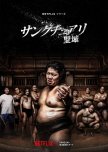
Inspiring sports film? Nuh-uh, this is a political drama, baby
Did I know anything about sumo before watching Sanctuary? No. Was I even notionally interested in sumo beforehand? Not at all. Did I binge all six hours of this series in one go? Absolutely.Our protagonist, Oze, becomes a sumo wrestler so he can financially support his dad. He has no emotional investment in sumo nor respect for its traditions and thus is quickly marked as a troublemaker. But don't let the premise mislead you: the sport should not be taken at face value. The power politics of the wrestlers and the vested interests means this series has just as much intrigue as a political drama. It's also just incredibly deeply and darkly funny.
Combine complex power dynamics, high end production (those slow-mo shots are *chefs kiss*), impressive character development, and you find yourself deeply sucked into the rich world of Sanctuary. The episode length times put me off from watching this at an earlier date, but when I did finally hit play, ohhh boy. The plot raced me through all eight episodes in one day,
That said, I can't give a full 10/10. At one stage, the series does teeter dangerously close to cheesy sports movie territory. Despite opinions expressed in other reviews, I think the ending worked well and redeemed the series from its brief foray into inspo-porn.
So yes, I highly recommend giving this series a shot. The blurb doesn't do it justice. I'll end this with a note on Ichinose Wataru's stellar performance. I'd seen him in a support role in the film, The Village, and was disappointed that he didn't get more screen time – his talent seemed so much larger than his character. With Sanctuary, his acting skills are on full display and he's a wonder to watch. Brilliant work.
Was this review helpful to you?

Larger-than-life tragedy about... work health and safety?
Yuu, when we first meet him, is in a state of misery. He works at his village's mega waste facility as a garbage sorter by day and illegal waste dumper by night, coerced into the work due to his mother's gambling addiction. His life takes a turn for the better when his childhood friend, Misaki, moves back to the town. The two share a love of Noh: an important tradition in the village.From the start, the stakes are clear: environmental destruction, worker exposure to deadly hazards, and deep corruption among local authorities. In many respects, this film could have been a documentary. The tale it tells is one currently happening around the world.
But to avoid banality and hitting too close to home, the film's creators have opted for a larger-than-life tragedy approach to the story. The result is a high quality production with beautiful cinematography, especially the shots focussing on the Noh tradition of the village. Unfortunately, this comes at a cost to narrative cohesion, character development, and pacing.
The split focus of The Village means it ultimately fails to pack a punch. While it does have a strong tragedy element that explores the morally ambiguous nature of coerced labour, the supporting characters are just a little too underdeveloped to make it work. Maybe give this reel a sharp edit and try again.
Was this review helpful to you?

A perpetual coming of age
Honestly, I'm still not 100% sold on whether one can really call Ainu Mosir a coming-of-age film. It follows teen Kanto as they try to figure out their Ainu identity. Yet, I would argue, this has very little to do with the childhood-to-adult convention of usual coming-of-age stories. Or, perhaps, that the age distinction is simply irrelevant.Kanto is far from the only one in the Ainu village community who is struggling with their identity. Debo, for an adult example, struggles in his own way with his Ainu identity, He expresses his uncertainty even as he tries to impress on Kanto the importance of being Ainu. Arguably, Debo too is undergoing a coming-of-age process.
What this film does well is sit in discomfort. I agree with JennyStuckOnThatRooftop's review in that I believe this film refrains from "judging". However, I don't think it's offering social commentary per se. It's more observational in its style and while there is certainly deliberate framing at play, I wouldn't go as far to say that's it editorialising. Instead, it allows for messy nuances and seeming contradictions to unravel on screen.
Sure, it's a quiet film as far as dialogue is concerned. But I found it noisy viewing: you can clearly hear the characters' thoughts among the rainfall or the crunch of snow. No one seems to really know their place in the world but they exist regardless.
Was this review helpful to you?

Eehhhhh
Look, it's a cute idea. But I think if you want to watch a good crime/fairytale blend, you're better off watching Hoodwinked (2005).Once Upon a Crime is a whodunnit lazily mashed together with a Disney-esque Cinderella story (I'm referring the animated one, not the kickass Whitney Houston one). The characters have no depth, nor is the world-building overly creative. I don't mind a bit of oddball humour but it ended up being annoying.
It's a shame. I think if the creators had thought outside the box a bit, this could've been decent. I got bored and dropped it around 30min in.
Was this review helpful to you?
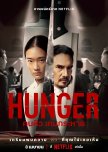
Would you like a side of class commentary with that?
The social criticism of this film is about as subtle as, well... plonking a massive rack of meat on a table and calling it a "sacrificial feast" for your wealthy onlookers.On the one hand, Hunger bangs you over the head with a wok while screaming, "rich people are evil" (facts) and asks you to maybe go touch some grass. On the other hand, it undercuts its own attempts at class commentary by erasing nuance and thereby failing to really contribute anything insightful.
I think if you want to watch something that leans more into the power dynamics and social criticism but still centres on food, I'd recommend The Platform (2019, Spanish).
That said, the production quality of the Hunger is top tier. It's worth watching purely for some of the cinematographic moments. The soundtrack is strong as well. Though I would've liked more of those jazz elements from the opening scenes to have been used later in the film too.
It may look like a long run time but it goes fast. Terrific pacing means this one is an easy watch for a Friday or Saturday night. Best served with the cheapest cook-up or takeaway you can muster.
Was this review helpful to you?










